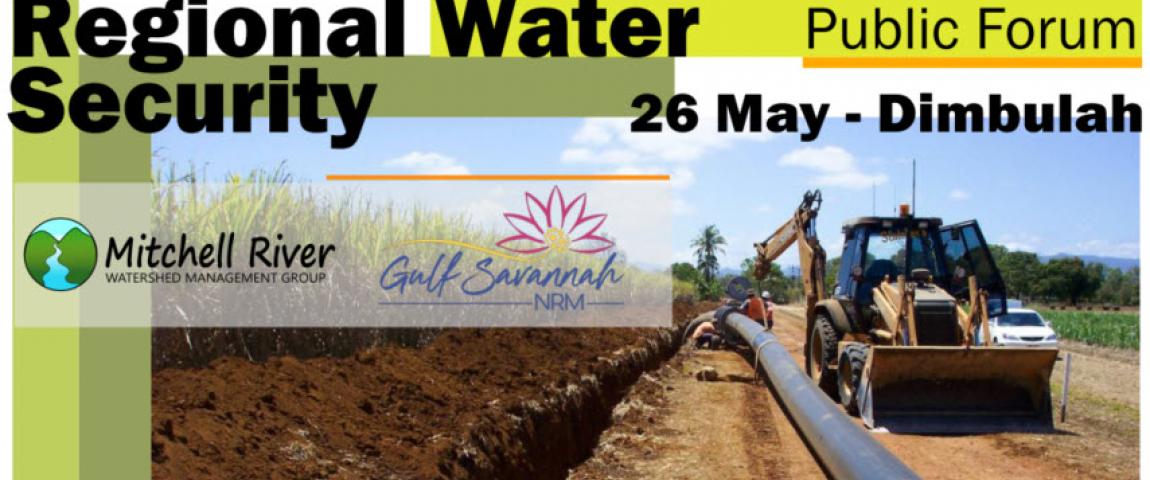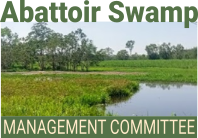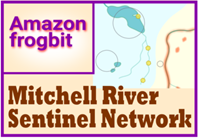2022 Water Security Forum
Nearly two dozen attendees settled in to the Dimbulah Hall on Thursday, 26 May to discuss and learn about water issues in the Mitchell catchment. The Forum was convened following the General Meetings of Gulf Savannah NRM and the Mitchell River Group. NB: See downloadable files at the bottom of this article.
Tablelands Regional Water Assessment Program
Our keynote speaker, Dr Patrick Huber of the Dept of Regional Development, Manufacturing and Water, unfortunately had to cancel at the last moment due to illness. He was intending to introduce the consultation process that the Dept will be rolling out in relation to a long-term planning activity known as the Regional Water Assessment (more info here).
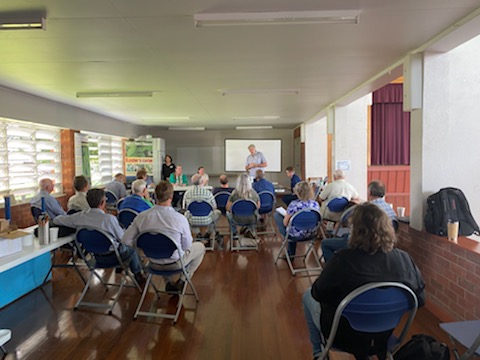 In place of Dr Huber's presentation, we ran an impromptu discussion session to identify key issues of concern for regional water users. The highlights have been captured in a file note (download here) and communicated to the Department.
In place of Dr Huber's presentation, we ran an impromptu discussion session to identify key issues of concern for regional water users. The highlights have been captured in a file note (download here) and communicated to the Department.
Lakeland Irrigation Scheme
Tony Potter from Regional Development Australia Tropical North gave a thorough update on the proposed Palmer River Dam and Lakeland Irrigation Scheme which would open up at least an additional 8000ha of land for intensive ag. There are still significant questions to be answered, but the project has gone through several million dollars worth of study and business case development to date.
Arriga Plains testing
Brian Prove provided a report on the Arriga Plains project that Mitchell River has been running since 2018. The project sought to locate test bores from a decade-previous effort by DNRM to monitor ground water levels and salinity across this important production zone in the Mareeba-Dimbulah Irrigation Area. Attendees were very interested to see the data indicating some rising groundwater and highly saline areas emerging even though other areas appear to be relatively stable. The Arriga Plains sit on a very complex hydrological and geological formation.
Fish movements and Tilapia risk
Drs Kaitlyn O’Mara and Ben Stewart-Koster presented on their research into tilapia movement within the Mitchell River catchment. Extensive work on native fish movements reveals the complex behaviours of various species as they make use of floodplain inundation for episodic migrations during their lifecycle. This data provides a richer picture of the utilisation of the watershed by native species. Adding another dimension, the scientists modelled habitats throughout the catchment to determine their relative suitability for tiliapia incursion. Although the invasive exotics have only become firmly established on the Walsh at Dimbulah, there is little chance of preventing their eventual spread to the Mitchell, Palmer, Lynd, and Alice. The researchers were able to show what areas of the rivers are likely to be more favoured by tilapia, and therefore could be sites for early treatment and mitigation efforts.
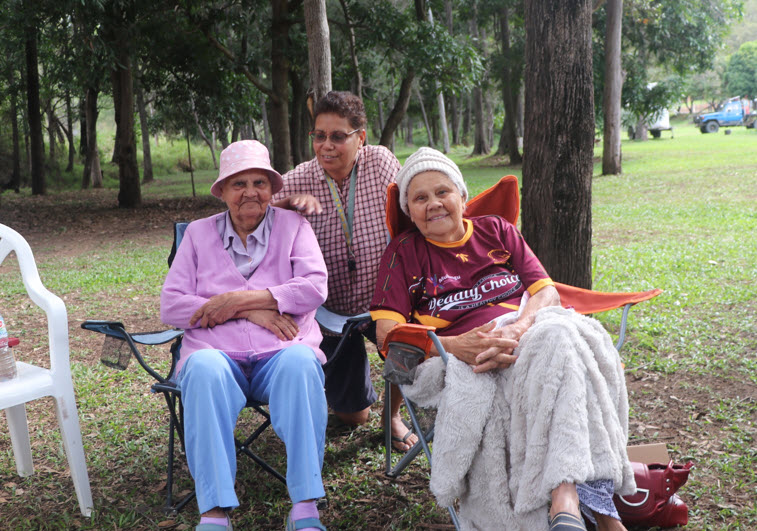 The power of Citizen Science
The power of Citizen Science
Sarah Rizvi gave an exciting presentation on a new water quality test kit and data collection program called "A Drop in the Bucket" (more info). Some of these kits are already being used to test water at Abattoir Swamp. Sarah also presented on progress toward remediation of a treasured watercourse at Irvinebank as an example of community re-asserting its aspirations for clean, healthy waterways after the intense modifications undertaken in the course of mining and urban development.
(L-R: Rita Turpin, Valmai Turpin and Jean Rosas. Photo courtesy Gulf Savannah NRM)
Better development decisions with a digital twin
Dr Wendy Merritt finished up the forum with a presentation on a project to model the Gilbert River Agricultural Precinct. The project is a proof-of-concept looking at how knowledge about water can be organised to support learning over time. The model becomes a "learning-focused digital twin" which makes it easier and faster to propose scenarios and assess options. The digital twin combines multiple knowledges, takes a landscape perspective of water storage options, and facilitates local scale engagement with water governance. This could have significant relevance if a similar project were undertaken in the Mitchell.
Acknowledgments
The Water Forum was held on the un-ceded land of the Mbabaram people and we offer respects to their elders past, present, and emerging. The event was co-hosted by Mitchell River Watershed Management Group and Gulf Savannah NRM. A special thanks to GSNRM for facilitating the technical services and sponsoring the delicious catering from local heroes, Camp64.
Download file
NRM Topic
Project Reference
- Log in to post comments

